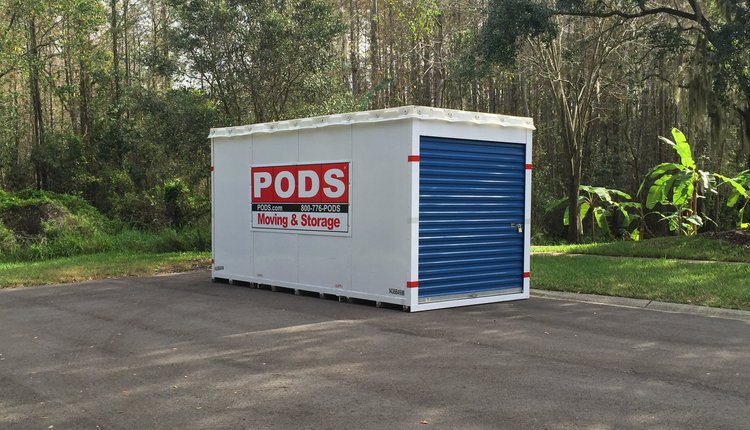One of the big guys contemplating dropping low yielding deals…..it’s that time again !!!!!
I recently attended a presentation given by one of the senior executives of one of the publically traded parcel shipping companies at an investor’s conference. These are called “road shows” and the purpose is to inform investors about past performance and where the firm is going in the near and long term. My ears perked up when the presenter got to the topic of Targeted Growth and Yield Improvement for Express.
“Yield improvement” is finance speak, that means that shippers are going to pay more for the services requested.
Far more interesting to me was the statement on his Powerpoint slide that read “Willing to Drop Less Profitable Accounts.”. This was smack dab in the center of the slide which I took as a sign and symbol of what may be the current attitude toward some of the larger shippers out there, and / or moderate sized accounts in terms of revenue or volume, who just happened to negotiate well, or were in the right place at the right time. Some of the “right time” may be related to the exit of DHL from the domestic small parcel landscape “officially” in January of 2009 but for all intents there were accounts seeking a new carrier in 2008 when DHL announced it was grounding its domestic air fleet and were going to award their air transport to UPS. So we are coming to the 5th anniversary of that announcement of May 28 that shocked so many.
So as I have written before Caveat Emptor. You may be visited by your carrier rep who may be carrying a brand new set of discounts for you, that may not be negotiable by him or her.
How can this be? I have a contract, you may protest!
Many of my clients' “contracts” that I have read lately have carrier provided language which allows the carrier to change the shipper's pricing program “at will”. Many don’t even have a provision for any advance notice! Often the very first page of the "contract" (which is in reality a nonbinding agreement) states something like “Carrier reserves the right to change Customer’s pricing program structure upon notice ....” without even specifying written notice! They could therefore notify you at 4:49 pm just prior to your pick up on a Friday and inform you that your program is changed to a higher cost price structure - effective immediately. You might respond with: “I’m not going to pay that.” but in return the carrier would reply: “Well, then I won't be sending a truck to pick up your shipments anymore.” So much for building long term trust and maintaining key supply chain partnerships!
This could never happen or has never happened, your rep may assert.
I was on the receiving end of millions upon millions of dollars’ worth of business when one of the major carriers did what I affectionately called the St. Valentine ’s Day Massacre. They literally pounced on what they determined were low yielding (I’m not saying money losing by the way) accounts and handed the decision maker a new set of rates, said they were canceling the old rates and the new set were non-negotiable. We are not talking small firms. Merrill Lynch, American Express, Viacom, Time Warner, Chase to name a few where hit by surprise. How would you like to be the one that had to explain to senior management why your transportation costs were about to skyrocket?
It’s time the carriers man up. Either we have a contract or we don’t. And the rates and discounts should be good for the length of the contract. As it is the carriers most often present not a price, but a discount off of a base and the carriers can change the base at will unless the shipper has negotiated some sort of protection or cap of the increase like the CPI. I have seen some carriers attempting to insert language into contracts that state “if you leave the relationship early the shipper has to pay a refund equal to “x”. If a shipper allows the carrier to do this, should there not be similar language that protects the shipper that says “if you change my cost before the expiration date then you keep me whole by paying me “Y”. If they terminate your contract early, should the carrier not have some penalty for the bind they put your employer in, given this is a duopoly world now? How about a clause that says “if the carrier goes on strike during the term of the agreement the carrier will compensate the shipper for the difference in the transportation cost the shipper must endure during the service interruption at your contracted carrier.
Think that can’t happen? Recall the 20 days one of the major carriers went on strike the same year as the other carrier was canceling low yielding contracts. And the carrier that had this prior labor event (as they called it) comes up against the expiration of their current labor agreement in four months.
Carriers, it’s either a contract or it isn’t. Shippers, you need to have language that protects the interest of your employers, and the moment your rep says “oh that can never happen”, think twice, chances are it has and the rep just was not around when it did. So think about business interruption insurance in your contract that puts some teeth into unilateral price changes and coverage for increased expense should your contracted carrier be unable (or unwilling) to provide the services contracted for.
I recently attended a presentation given by one of the senior executives of one of the publically traded parcel shipping companies at an investor’s conference. These are called “road shows” and the purpose is to inform investors about past performance and where the firm is going in the near and long term. My ears perked up when the presenter got to the topic of Targeted Growth and Yield Improvement for Express.
“Yield improvement” is finance speak, that means that shippers are going to pay more for the services requested.
Far more interesting to me was the statement on his Powerpoint slide that read “Willing to Drop Less Profitable Accounts.”. This was smack dab in the center of the slide which I took as a sign and symbol of what may be the current attitude toward some of the larger shippers out there, and / or moderate sized accounts in terms of revenue or volume, who just happened to negotiate well, or were in the right place at the right time. Some of the “right time” may be related to the exit of DHL from the domestic small parcel landscape “officially” in January of 2009 but for all intents there were accounts seeking a new carrier in 2008 when DHL announced it was grounding its domestic air fleet and were going to award their air transport to UPS. So we are coming to the 5th anniversary of that announcement of May 28 that shocked so many.
So as I have written before Caveat Emptor. You may be visited by your carrier rep who may be carrying a brand new set of discounts for you, that may not be negotiable by him or her.
How can this be? I have a contract, you may protest!
Many of my clients' “contracts” that I have read lately have carrier provided language which allows the carrier to change the shipper's pricing program “at will”. Many don’t even have a provision for any advance notice! Often the very first page of the "contract" (which is in reality a nonbinding agreement) states something like “Carrier reserves the right to change Customer’s pricing program structure upon notice ....” without even specifying written notice! They could therefore notify you at 4:49 pm just prior to your pick up on a Friday and inform you that your program is changed to a higher cost price structure - effective immediately. You might respond with: “I’m not going to pay that.” but in return the carrier would reply: “Well, then I won't be sending a truck to pick up your shipments anymore.” So much for building long term trust and maintaining key supply chain partnerships!
This could never happen or has never happened, your rep may assert.
I was on the receiving end of millions upon millions of dollars’ worth of business when one of the major carriers did what I affectionately called the St. Valentine ’s Day Massacre. They literally pounced on what they determined were low yielding (I’m not saying money losing by the way) accounts and handed the decision maker a new set of rates, said they were canceling the old rates and the new set were non-negotiable. We are not talking small firms. Merrill Lynch, American Express, Viacom, Time Warner, Chase to name a few where hit by surprise. How would you like to be the one that had to explain to senior management why your transportation costs were about to skyrocket?
It’s time the carriers man up. Either we have a contract or we don’t. And the rates and discounts should be good for the length of the contract. As it is the carriers most often present not a price, but a discount off of a base and the carriers can change the base at will unless the shipper has negotiated some sort of protection or cap of the increase like the CPI. I have seen some carriers attempting to insert language into contracts that state “if you leave the relationship early the shipper has to pay a refund equal to “x”. If a shipper allows the carrier to do this, should there not be similar language that protects the shipper that says “if you change my cost before the expiration date then you keep me whole by paying me “Y”. If they terminate your contract early, should the carrier not have some penalty for the bind they put your employer in, given this is a duopoly world now? How about a clause that says “if the carrier goes on strike during the term of the agreement the carrier will compensate the shipper for the difference in the transportation cost the shipper must endure during the service interruption at your contracted carrier.
Think that can’t happen? Recall the 20 days one of the major carriers went on strike the same year as the other carrier was canceling low yielding contracts. And the carrier that had this prior labor event (as they called it) comes up against the expiration of their current labor agreement in four months.
Carriers, it’s either a contract or it isn’t. Shippers, you need to have language that protects the interest of your employers, and the moment your rep says “oh that can never happen”, think twice, chances are it has and the rep just was not around when it did. So think about business interruption insurance in your contract that puts some teeth into unilateral price changes and coverage for increased expense should your contracted carrier be unable (or unwilling) to provide the services contracted for.










